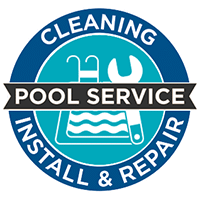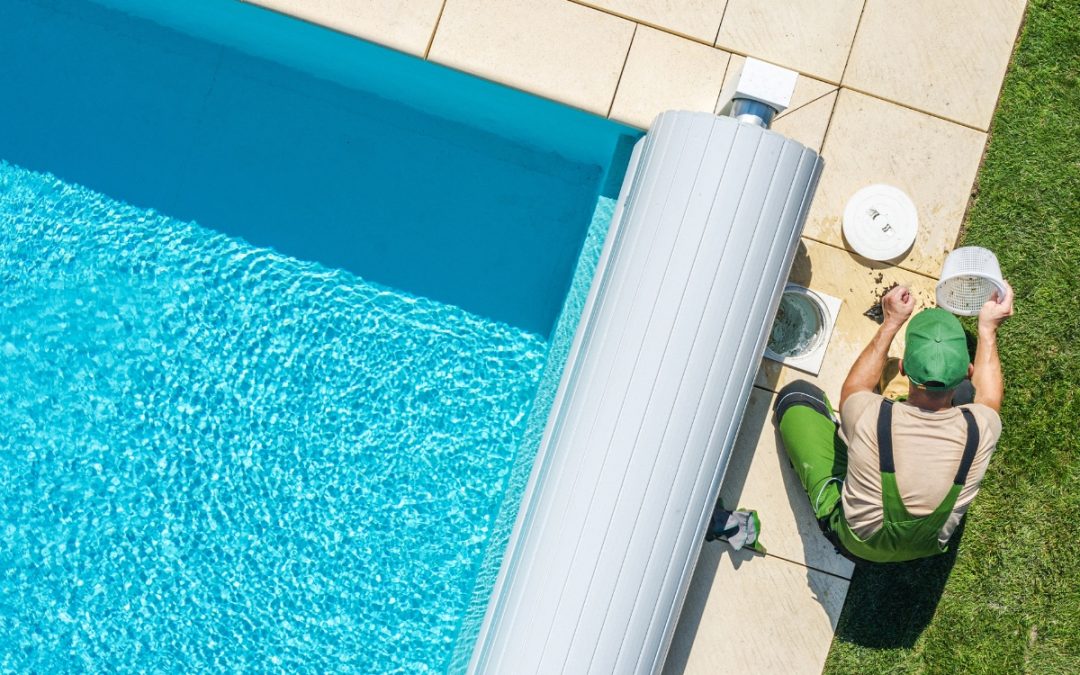It’s the perfect time of year for swimming and lounging by the pool, but before you dive in, it’s important to make sure you fully understand the system that keeps your pool clean and safe. The pool pump and filter are an essential piece of equipment for any residential or commercial pool and need to be regularly maintained for optimal performance. Without the right knowledge, you risk having a dirty, uninviting pool.
That’s why understanding the pool pump and filter is so important. In this blog post, you’ll learn all the details needed to ensure you have a healthy, clean pool and how to keep your pool pump and filter properly maintained. We’ll explore topics like what your pool pump and filter do, what the signs are when it’s time to replace or repair them, and the best ways to clean and maintain them.
Whether it’s for a home or a large business or vacation pool, you’ll be able to apply the advice and tips given here to any size and type of pool. With the right maintenance and understanding, you’ll have your pool ready to jump into in no time. Let’s dive in and learn more about pool pumps and filters!
What is a Pool Pump and Filter System?
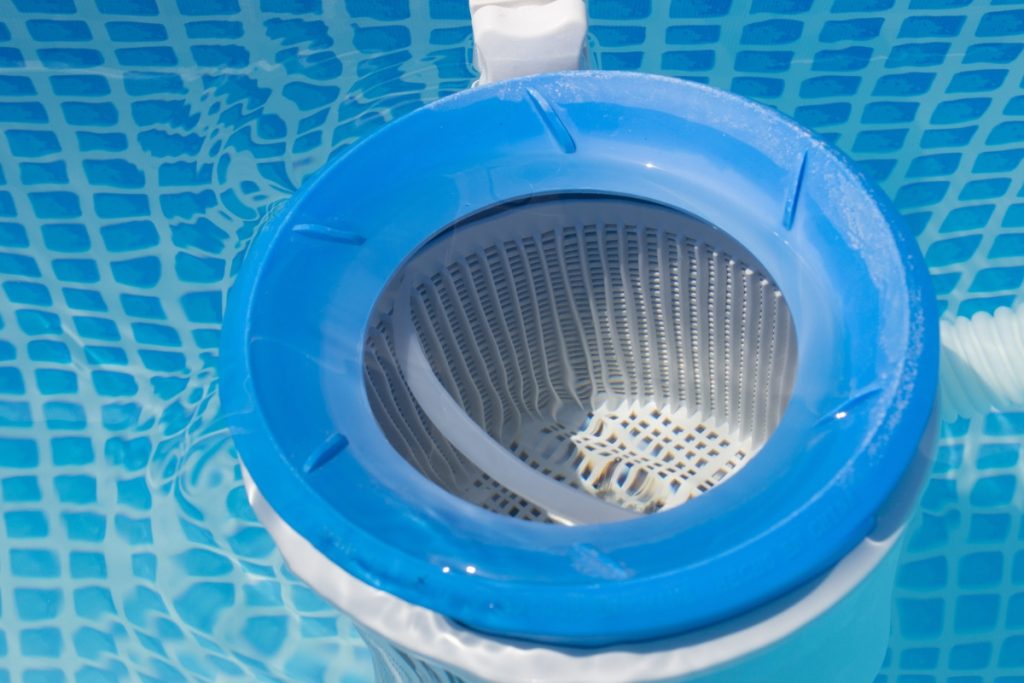
A pool pump and filter system is a key component in ensuring a healthy and clean swimming pool. The set-up works by taking water from the pool, pumping it through a filter, then returning the filtered water to the pool. This cycle is repeated continuously to keep the water free of debris and contaminants.
The pool pump is the engine of the pump and filter system, as it circulates the water, pushing it through the filter. A typical pool pump is made up of two parts. The wet-end contains the impeller, while the dry-end houses the motor. The impeller is the part of the pump that pulls water into the pump at high speed, forcing it through a strainer basket and then the filter.
The filter is an important component, as it removes any dirt and debris from the water, such as leaves, pollen, and dust. Depending on your pool size and system, there are several types of filters available, all of which have different levels of efficiency and capacity. For example, sand filters are the most common and least expensive, but need to be cleaned regularly; cartridge filters are more expensive, but require less maintenance; and de filters, which use diatomaceous earth, are the most efficient, but have the highest cost.
In order to keep your pool pump and filter system working optimally, it is important to regularly check and maintain the system components. For instance, the pool pump should be checked monthly to make sure it is not clogged with debris or running inefficiently, the filter should be inspected and cleaned at least once a month, and the pool’s chemical balance should be checked weekly to ensure proper sanitation.
How Does a Pool Pump and Filter System Work?
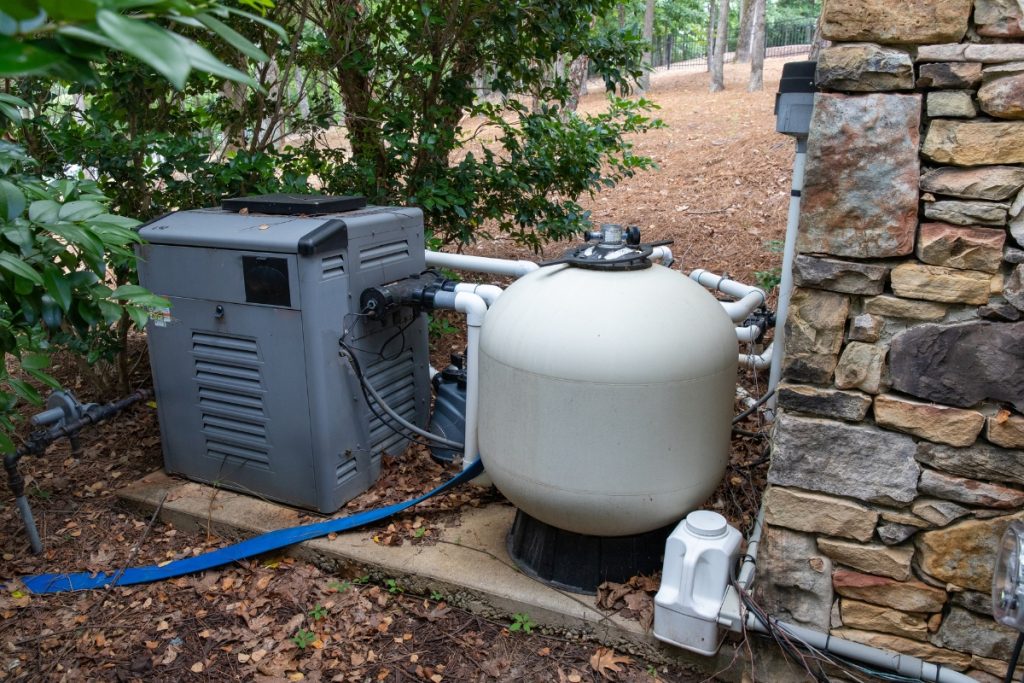
A pool pump and filter system are essential for a clean, healthy pool. It is important to understand how a pool pump and filter system works so that you can maintain your pool properly and ensure that it stays clean and safe.
The pool pump and filter system are responsible for circulating the water through the filter which removes any dirt or debris from the pool water. The pool pump also helps to keep the water in circulation so that it is constantly being filtered.
The pool filter is usually mounted on the side of the pool, near the pool pump. It consists of a large container with several layers of filter media that trap dirt and debris. Water enters the filter and is forced through the filter media before it is sent back into the pool.
To ensure that the filter is working properly and removing as much debris as possible, the filter media must be cleaned regularly. This is typically done by backwashing the filter which reverses the flow of water through the filter media, flushing any dirt and debris that has accumulated.
The pool pump is what powers the pool filter and circulates the water. It is typically located on the side of the pool and consists of a motor, impeller, and a strainer basket. The motor draws water from the pool and sends it through the impeller which rapidly spins and pushes the water through the filter. Once the water has been filtered, it is then sent back into the pool.
Benefits of a Pool Pump and Filter System
A pool pump and filter system is essential when it comes to keeping your pool clean, clear and healthy. Not only do they work to maintain water clarity, they also help with circulation, filtration and sanitation of your pool. Here are some of the key benefits of having a pool pump and filter system installed.
- Improved Water Quality: The filter works to remove any dirt and debris that enters your pool, helping to preserve the water’s clarity. This also helps prevent bacteria build-up, which can be dangerous to swimmers, as well as causing a murky, green appearance. Keeping the water clean, clear and healthy is the top benefit of a pool pump and filter system.
- Reduced Maintenance: A properly functioning pool pump and filter system helps reduce the amount of maintenance required to keep your pool in prime condition. By filtering out impurities, your pool will require fewer chemical treatments as well as less physical labor, such as skimming.
- Increased Circulation: Moving the pool water through the pump and filter allows for better circulation and oxygenation, making sure it’s properly circulated around the entire pool. This keeps the water temperature even throughout, helping keep algae growth at bay.
- Decreased Costs: Installing a pool pump and filter system can save you money in the long run. By reducing the need for physical labor, as well as reducing the amount of chemicals needed to treat the pool, you’ll be able to save money in the long run.
Types of Pool Pumps and Filters
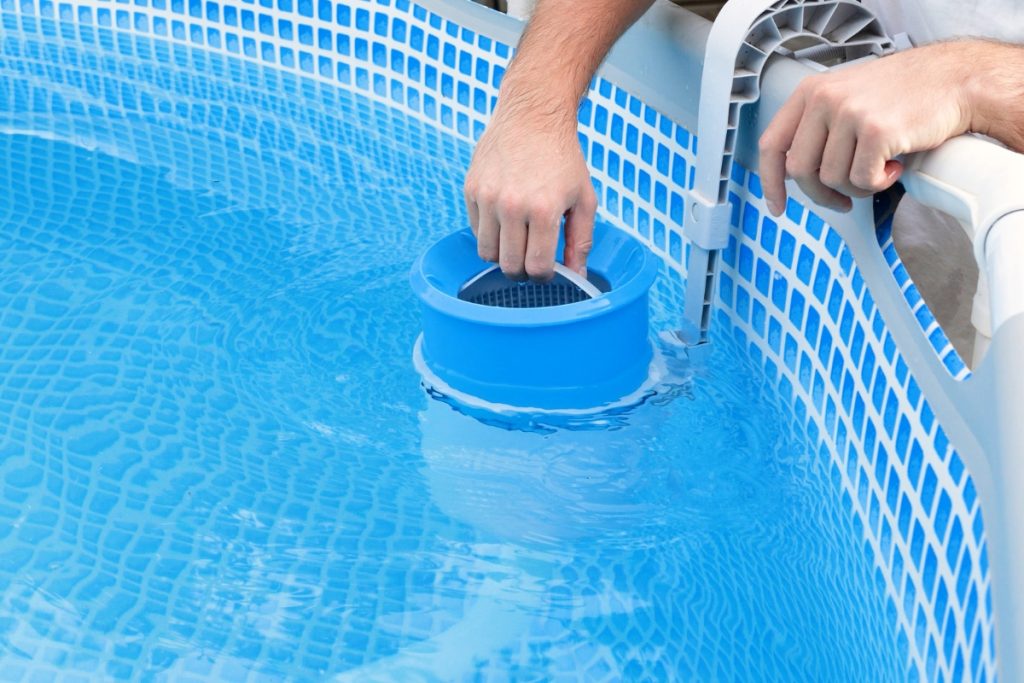
Choosing the right pool pump and filter is essential to maintaining a healthy pool. The type and size of pump and filter you need depends on several factors, including the size of your pool and the type of sanitation system you use. A well-maintained pump and filter makes pool maintenance much easier and more efficient. Knowing the types of pool pumps and filters available will help you determine the best option for your swimming pool.
When it comes to pool pumps, there are two primary types: single-speed pumps and variable-speed pumps. Single-speed pumps operate at a set speed, meaning the water flow is not adjustable. These pumps are affordable and ideal for small pools with minimal features. Variable-speed pumps are more expensive, but provide greater flexibility in the water flow. They can be adjusted to slow or high speeds depending on the pool features and features.
Filters also come in two main types: sand filters and cartridge filters. Sand filters are the most common type of pool filter and can be used for both above-ground and in-ground pools. They are typically filled with sand, which traps debris and particles as the water passes through. This type of filter needs to be cleaned regularly in order to maintain optimum filtration. Cartridge filters use a porous material, such as paper or cloth, to capture dirt and debris. These filters are more efficient but require more frequent maintenance than sand filters.
Both the pump and filter are important components of a healthy pool. Understanding the different types of pumps and filters available can help you make an informed decision on the best option for your pool. With the right pump and filter, you can ensure your pool is always crystal clear and easy to maintain.
Common Problems with Pool Pump and Filter Systems
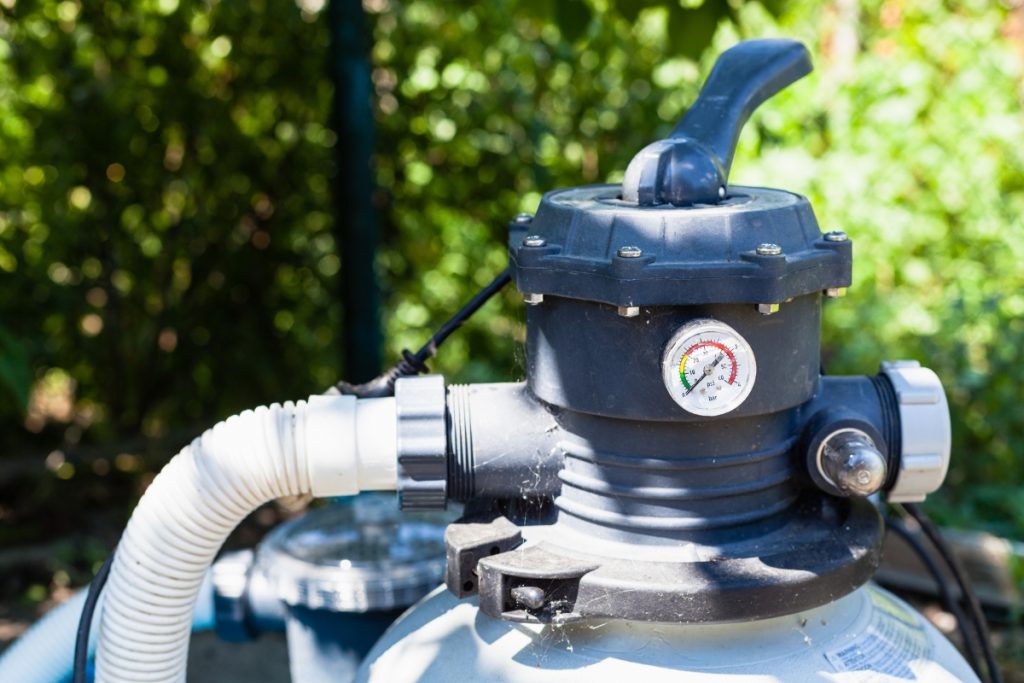
It’s important to understand the components of a pool pump and filter system, as they are the key to keeping your swimming pool clean and well-maintained. Without proper care, the pump and filtration system can become clogged, causing the water flow to slow, resulting in poor filtration and sanitation of your swimming pool. Below are some common problems that can arise and how to solve them:
- Debris in the pool pump basket: When dirt, leaves, and other debris fill your pool’s pump basket, it restricts the flow of water to the filter, causing it to be inefficient. To solve this problem, you should regularly clean the pump basket, and make sure it is free from any debris.
- Blockage in the filter system: If there is a blockage in the filter system, it can cause the water to be less clean and clear. To fix this, you should regularly check the filter cartridge and backwash the filter if needed.
- Imbalance of water chemistry: Pool water can become unbalanced due to too much chlorine or pH levels that are too high or too low. This can have a number of negative consequences, including irritation of eyes and skin, cloudy water, and scale build-up. To resolve this, you should regularly test the pool water chemistry and adjust it as needed.
- Poor circulation and low water levels: If the water level in the pool is too low and the circulation is inadequate, it can cause algae growth and other problems. To prevent this, you should check the water level and keep it two inches below the skimmer box, and make sure that the circulation is consistent throughout the pool.
By understanding the common problems associated with a swimming pool pump and filter system, and by taking steps to properly maintain the components, you can ensure that your pool remains clean and well-maintained for years to come.
Tips for Maintaining a Healthy Pool Pump and Filter System
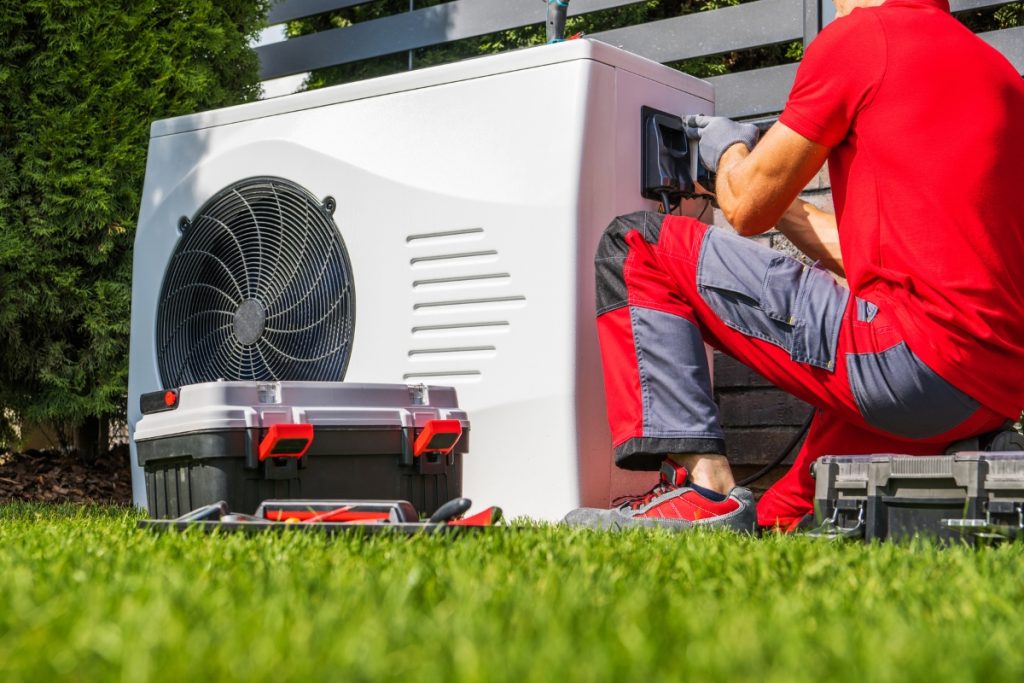
Maintaining a healthy pool pump and filter system is essential for clean, safe swimming. It is the key to ensuring that the pool water is free of debris and infectious diseases. Proper maintenance of the pool pump and filter will ensure that it is safe and efficient to use. Here are some tips for maintaining a healthy pool pump and filter system.
First and foremost, make sure to regularly clean the pool pump and filter system. This should be done at least once a month or every other month depending on the type of pool and filter. When cleaning the pool pump and filter, start by removing any debris from the pool such as leaves or dirt. Then, use a brush or vacuum to remove any dirt or algae from the walls and floor of the pool. Finally, make sure the suction port and the skimmer basket are free of debris.
It’s also important to check the pool pump and filter system for any damage or wear. Make sure to inspect the pump and filter for any cracks, leaks, or rust. If any of these are present, it’s recommended to have the pump and filter serviced as soon as possible. The pump and filter should also be checked for signs of corrosion or any other damage.
In addition, you should also check the filter media regularly. Depending on the type of filter, either a DE or sand filter, it is important to make sure the filter media is still effective and not clogged. The filter media should be changed every few years or when it is no longer effective.
Finally, make sure to inspect the pool pump and filter system for any blockages. The blockages can occur in the suction lines, skimmer baskets, or return lines. It is important to clear any blockages as soon as possible so that the pool pump and filter system is functioning properly.
Conclusion
Having an understanding of your pool pump and filter is essential to maintaining a healthy pool. Regularly changing the pool filter, cleaning the skimmer basket, and checking the pool pump are all important steps in keeping your pool looking and functioning its best.
It’s also important for safety, as clogged filters, pumps, and baskets can lead to water circulation issues. Though pool maintenance can be daunting, understanding your pool pump and filter can go a long way toward helping keep your pool in great condition.
If you encounter any problems with your pool pump or filter, it’s best to speak with a qualified professional like Clear Water Pools Atlanta for assistance. We have pool maintenance services that can help keep your pool in top condition, all year long. Give us a call at 770-406-8638 or send us a message for a free estimate on your pool project

